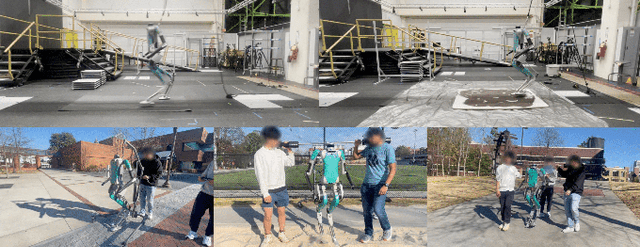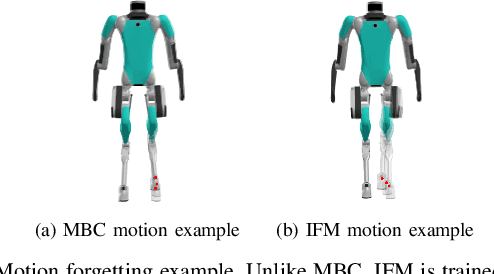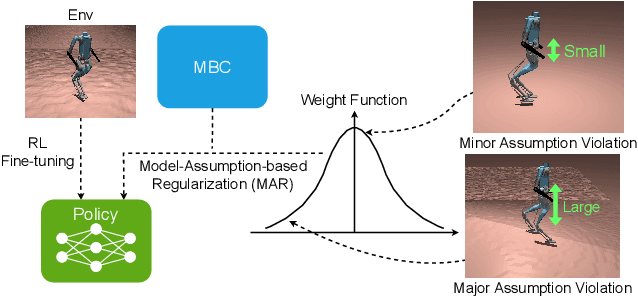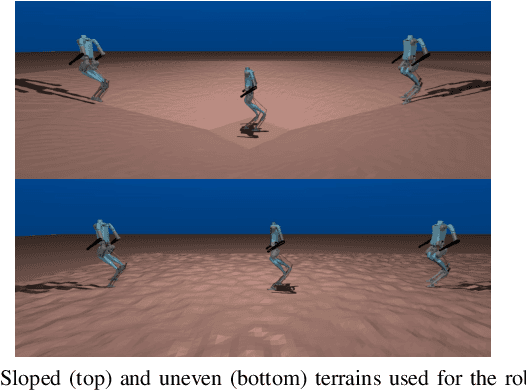PreCi: Pretraining and Continual Improvement of Humanoid Locomotion via Model-Assumption-Based Regularization
Paper and Code
Apr 14, 2025



Humanoid locomotion is a challenging task due to its inherent complexity and high-dimensional dynamics, as well as the need to adapt to diverse and unpredictable environments. In this work, we introduce a novel learning framework for effectively training a humanoid locomotion policy that imitates the behavior of a model-based controller while extending its capabilities to handle more complex locomotion tasks, such as more challenging terrain and higher velocity commands. Our framework consists of three key components: pre-training through imitation of the model-based controller, fine-tuning via reinforcement learning, and model-assumption-based regularization (MAR) during fine-tuning. In particular, MAR aligns the policy with actions from the model-based controller only in states where the model assumption holds to prevent catastrophic forgetting. We evaluate the proposed framework through comprehensive simulation tests and hardware experiments on a full-size humanoid robot, Digit, demonstrating a forward speed of 1.5 m/s and robust locomotion across diverse terrains, including slippery, sloped, uneven, and sandy terrains.
 Add to Chrome
Add to Chrome Add to Firefox
Add to Firefox Add to Edge
Add to Edge